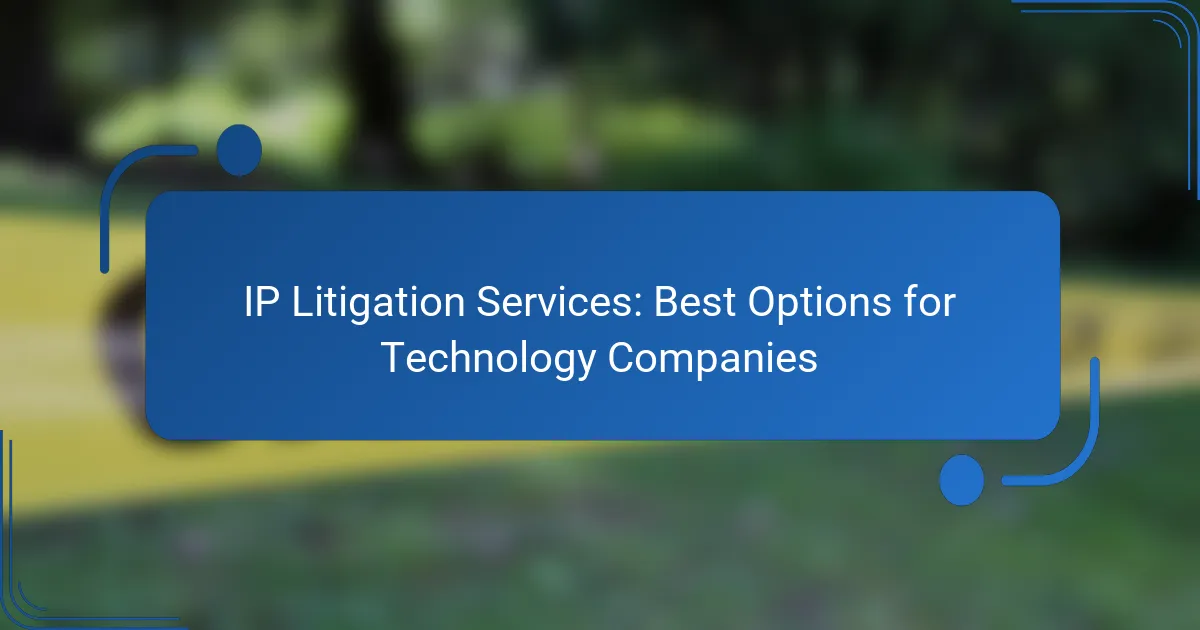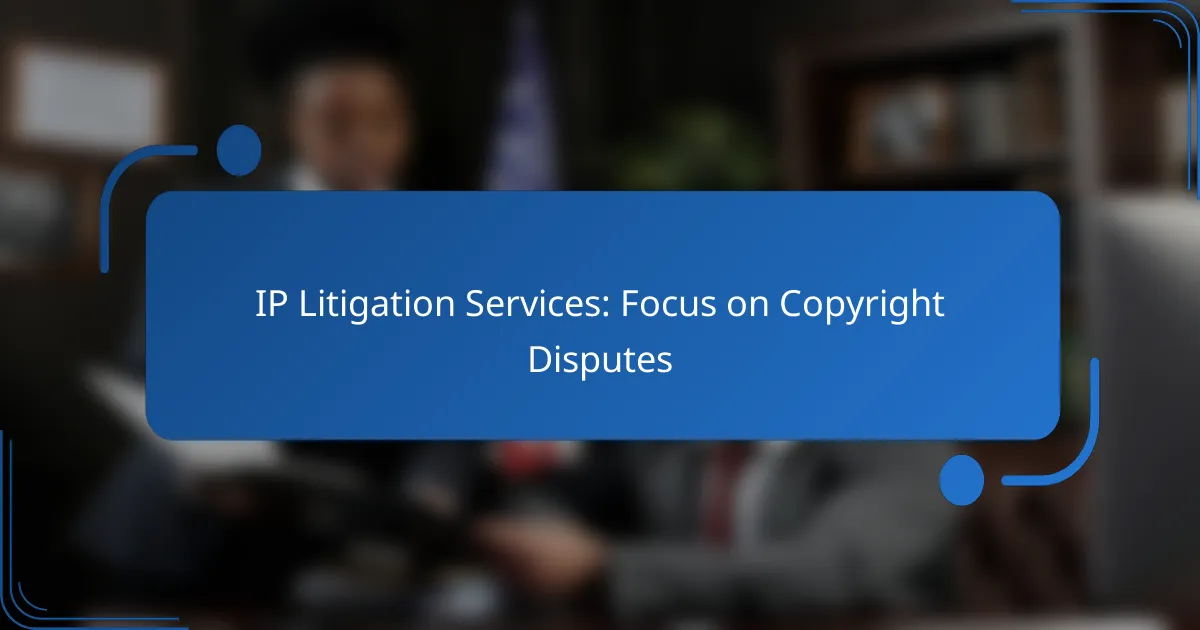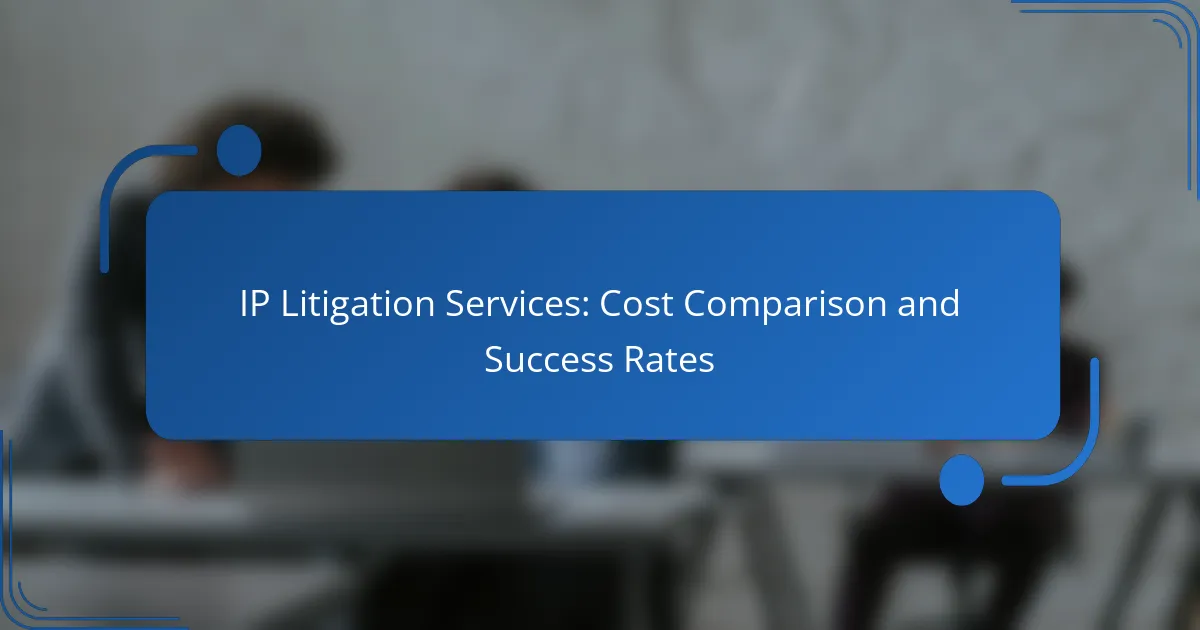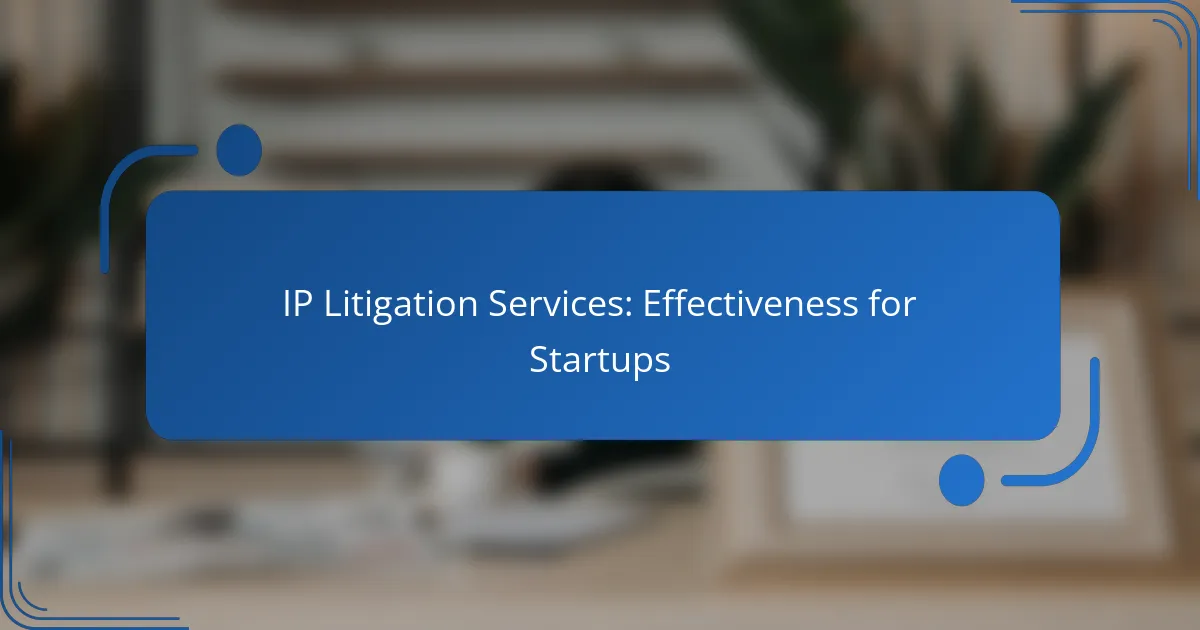For technology companies navigating the complexities of intellectual property disputes, selecting the right IP litigation services is crucial. Options range from specialized law firms to boutique practices and in-house legal teams, each offering unique expertise and approaches. These services not only protect intellectual property rights but also help resolve disputes and manage infringement risks, ensuring companies maintain their competitive edge.
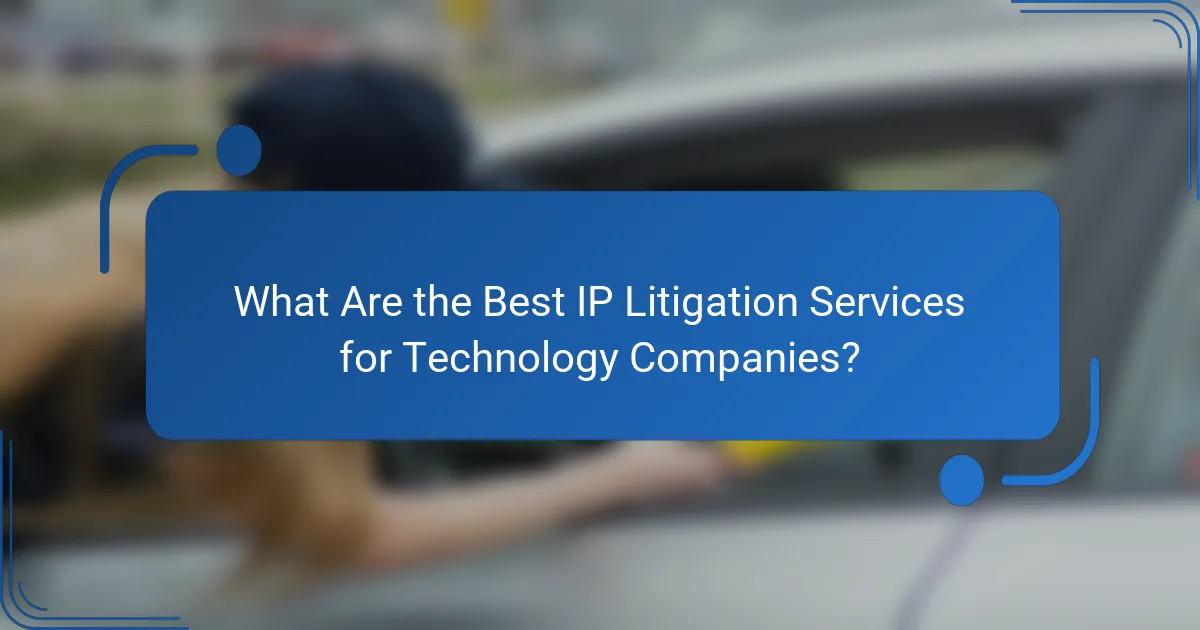
What Are the Best IP Litigation Services for Technology Companies?
The best IP litigation services for technology companies include specialized law firms, boutique practices, and in-house legal teams that focus on intellectual property disputes. These options vary in expertise, cost, and approach, allowing companies to choose based on their specific needs and resources.
Law Firm A
Law Firm A is renowned for its extensive experience in handling complex IP litigation cases, particularly in the technology sector. With a team of seasoned attorneys, they provide strategic counsel and aggressive representation in patent disputes and copyright infringement cases.
Companies can expect tailored legal strategies that align with their business objectives, often leading to favorable outcomes in negotiations or court. Their billing typically ranges from mid to high hourly rates, reflecting their expertise and success rate.
Law Firm B
Law Firm B specializes in IP litigation for emerging technology companies, offering a blend of legal acumen and industry insight. They are particularly adept at navigating the intricacies of software patents and trade secret protection.
This firm often adopts a flexible fee structure, including contingency arrangements, which can be beneficial for startups with limited cash flow. Their proactive approach helps clients avoid potential litigation pitfalls early in the development process.
Law Firm C
Law Firm C has a strong reputation for defending technology companies against IP claims, focusing on both litigation and alternative dispute resolution. Their attorneys are skilled in negotiating settlements that minimize disruption to business operations.
Clients appreciate their transparent communication and detailed case assessments, which aid in making informed decisions. Their fees are competitive, often appealing to mid-sized firms looking for quality representation without exorbitant costs.
Specialized IP Boutique
A specialized IP boutique offers a concentrated focus on intellectual property law, making it an excellent choice for tech companies with unique needs. These firms typically have a deep understanding of specific technologies and industries, providing tailored legal solutions.
While their hourly rates may be higher, the expertise and personalized service can lead to more efficient resolutions. Companies should consider these boutiques for niche IP issues or when facing particularly challenging litigation scenarios.
In-House Legal Teams
In-house legal teams provide technology companies with immediate access to legal expertise and a deep understanding of the company’s operations and IP portfolio. This setup allows for quicker decision-making and more cohesive strategies in managing IP risks.
However, maintaining an in-house team can be costly, especially for smaller firms. Companies should weigh the benefits of having dedicated resources against the potential need for external counsel in complex litigation cases.
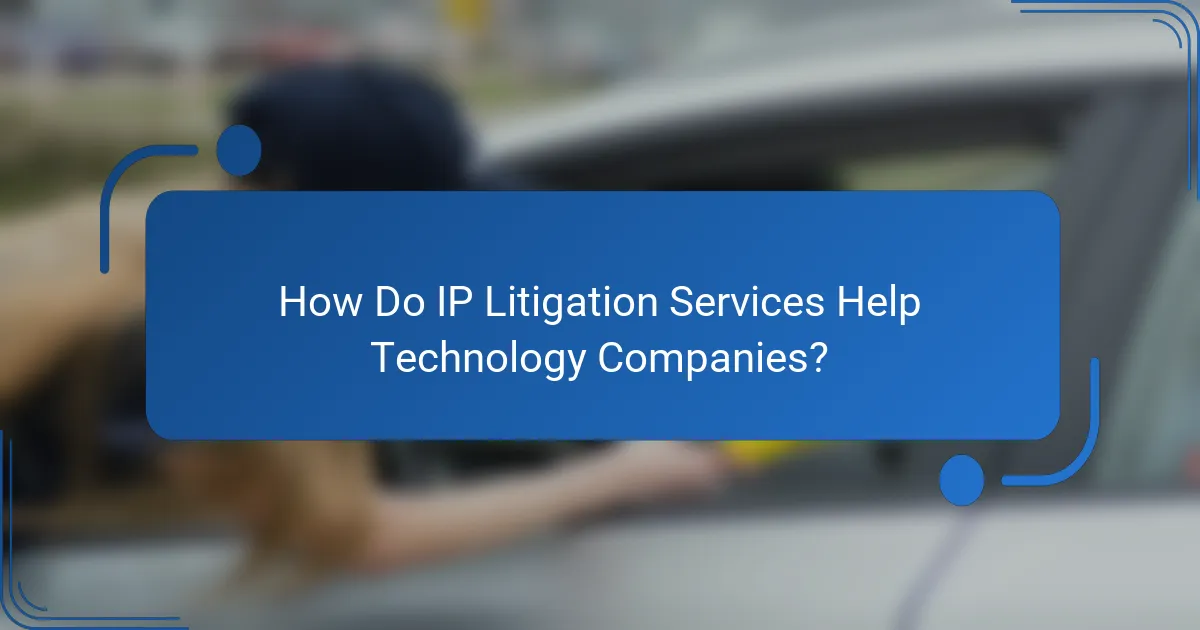
How Do IP Litigation Services Help Technology Companies?
IP litigation services assist technology companies by safeguarding their intellectual property rights, resolving disputes, and mitigating risks associated with infringement. These services are essential for maintaining competitive advantage and ensuring compliance with legal standards.
Protection of Intellectual Property
Protection of intellectual property (IP) is crucial for technology companies to secure their innovations and maintain market position. IP litigation services help enforce patents, trademarks, and copyrights, preventing unauthorized use or reproduction of proprietary technologies.
Companies should regularly assess their IP portfolio and consider filing for patents or trademarks to strengthen their legal standing. Engaging legal experts can provide insights into the best strategies for protecting valuable assets.
Dispute Resolution
Dispute resolution is a key function of IP litigation services, enabling technology companies to address conflicts efficiently. These services often involve negotiation, mediation, or arbitration, which can be less costly and time-consuming than traditional litigation.
Choosing the right method of dispute resolution depends on the specific circumstances of the case. Companies should weigh the potential benefits of a quicker resolution against the need for a formal court ruling, which may provide a stronger precedent.
Risk Mitigation
Risk mitigation involves identifying and minimizing potential legal threats to a company’s intellectual property. IP litigation services can help technology firms conduct risk assessments and develop strategies to avoid infringement claims.
Companies should implement regular audits of their IP assets and stay informed about industry regulations to reduce exposure to legal challenges. Establishing clear internal policies regarding IP use can further safeguard against unintentional violations.
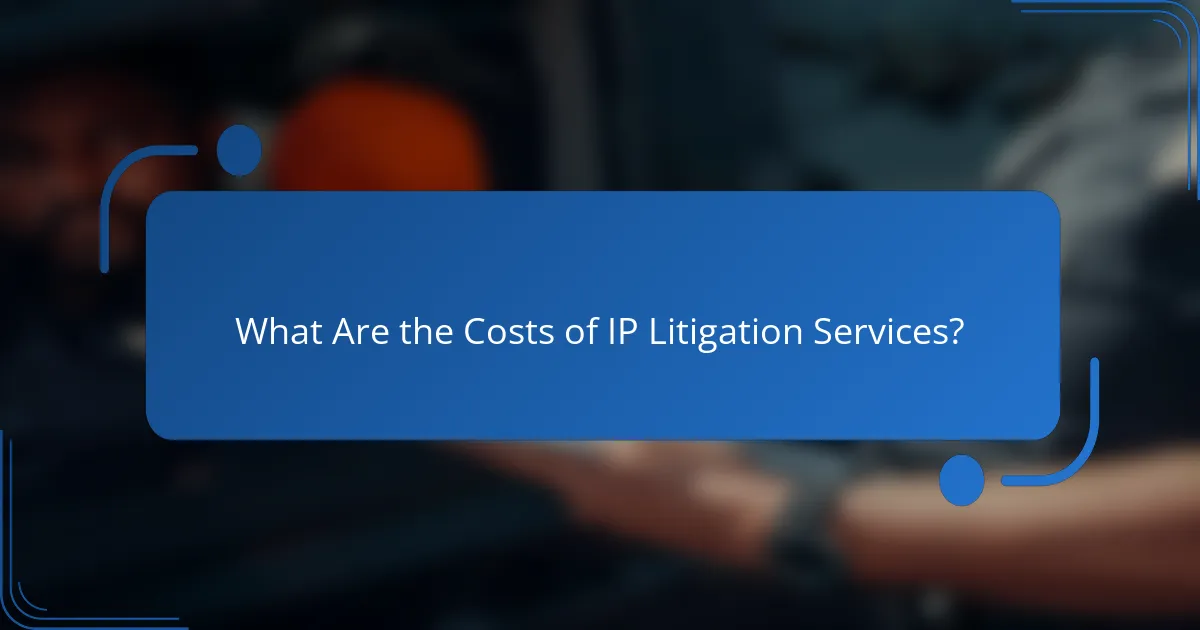
What Are the Costs of IP Litigation Services?
The costs of IP litigation services can vary widely based on several factors, including the complexity of the case, the attorney’s experience, and the chosen fee structure. Understanding these costs is crucial for technology companies to budget effectively and make informed decisions regarding legal representation.
Hourly Rates
Hourly rates for IP litigation attorneys typically range from $200 to over $1,000 per hour, depending on the attorney’s expertise and the firm’s reputation. Larger firms in major cities often charge higher rates compared to smaller firms or those in less populated areas.
When considering hourly rates, it’s essential to evaluate the attorney’s experience and track record in IP cases. A more experienced attorney may charge a higher rate but could potentially resolve the case more efficiently, saving costs in the long run.
Flat Fees
Flat fees for IP litigation services can provide predictability in budgeting. These fees may cover specific tasks, such as filing a lawsuit or conducting a patent search, and can range from a few thousand to tens of thousands of dollars depending on the complexity of the work involved.
Choosing a flat fee arrangement can be beneficial for technology companies looking to control costs. However, it’s important to clarify what services are included in the fee to avoid unexpected expenses later on.
Contingency Fees
Contingency fees are less common in IP litigation but can be an option in certain cases, particularly when a company is pursuing damages. In this arrangement, the attorney receives a percentage of the recovery, typically ranging from 20% to 40% of the awarded amount.
This fee structure can be advantageous for companies with limited upfront capital, as they only pay if they win the case. However, it is crucial to understand the terms of the contingency agreement and any potential costs that may arise during the litigation process.
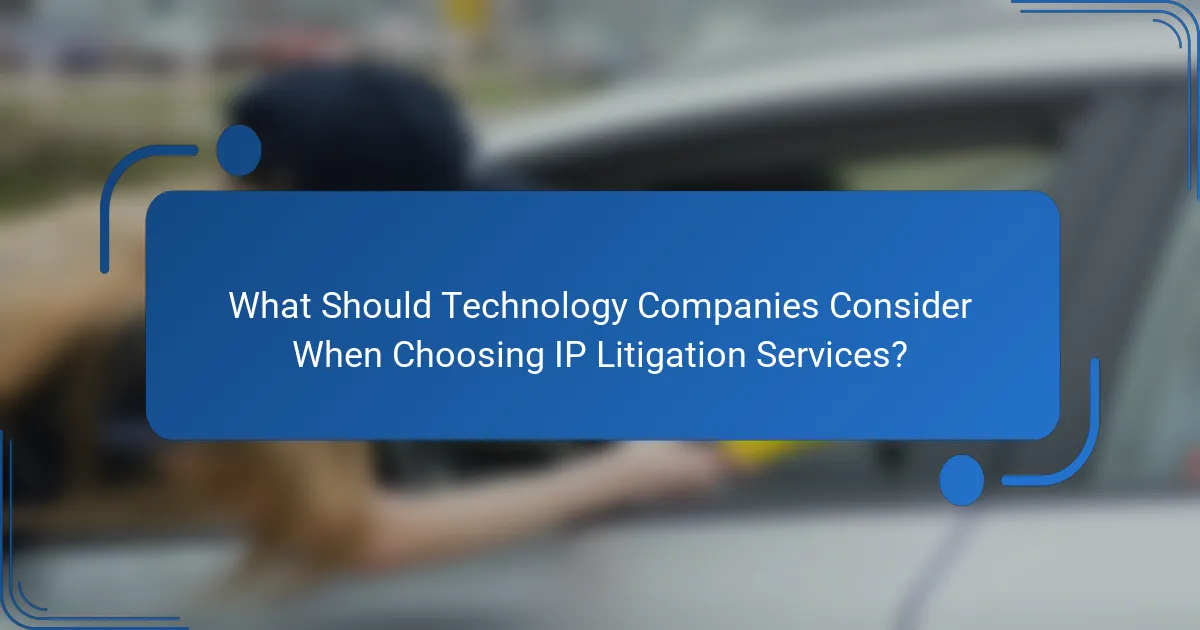
What Should Technology Companies Consider When Choosing IP Litigation Services?
Technology companies should prioritize expertise, track record, and client feedback when selecting IP litigation services. These factors can significantly influence the outcome of intellectual property disputes and overall legal strategy.
Experience in Technology Sector
Choosing a litigation service with a strong background in the technology sector is crucial. These firms understand the unique challenges and nuances of tech-related IP issues, such as software patents, copyright in digital content, and trade secrets.
Look for firms that have handled cases similar to yours, whether in software, hardware, or telecommunications. Their familiarity with industry standards and regulations can provide a strategic advantage in litigation.
Success Rate
The success rate of a litigation service is a key indicator of their effectiveness. A high success rate suggests that the firm has a proven track record in winning cases, which can be particularly important in high-stakes technology disputes.
When evaluating success rates, consider the types of cases won and the complexity involved. A firm that excels in smaller cases may not be as effective in larger, more complex litigation.
Client Testimonials
Client testimonials offer valuable insights into the experiences of other technology companies with a particular litigation service. Positive feedback can indicate reliability, communication, and overall satisfaction with the legal representation.
Seek out reviews and case studies that highlight the firm’s strengths and weaknesses. Engaging with past clients can also provide a clearer picture of what to expect in terms of service and outcomes.
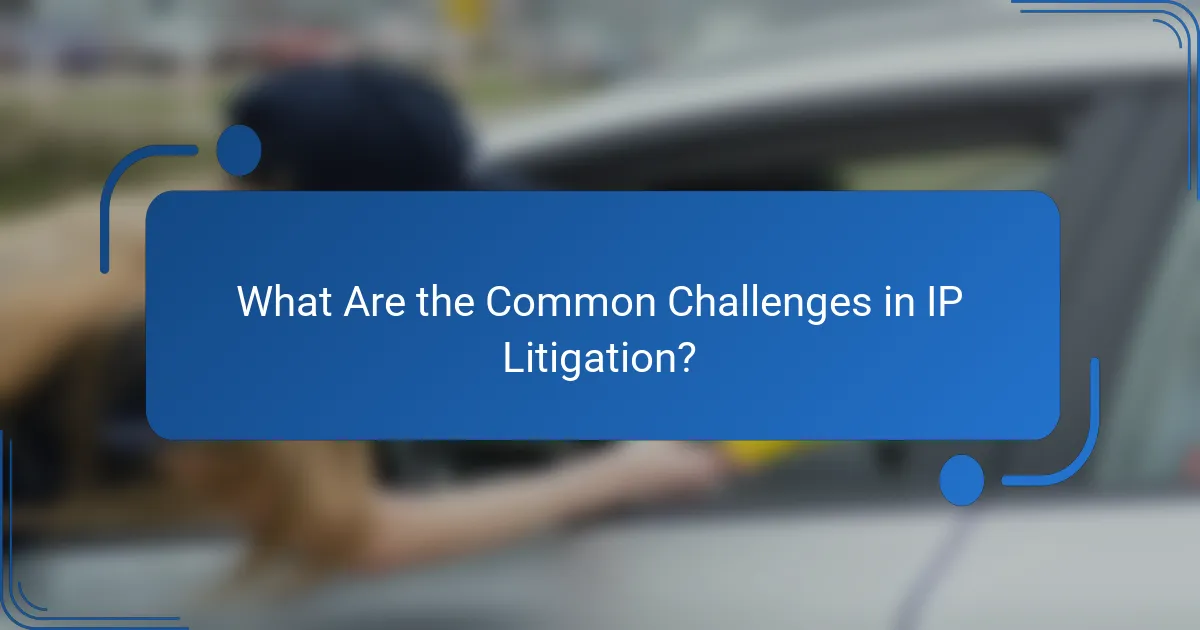
What Are the Common Challenges in IP Litigation?
Technology companies face several common challenges in IP litigation, including high costs, lengthy processes, and complex legal frameworks. These factors can significantly impact a company’s resources and strategic decisions regarding intellectual property protection.
High Costs
The financial burden of IP litigation can be substantial, often reaching hundreds of thousands to millions of USD. Legal fees, expert witness costs, and court expenses can accumulate quickly, making it essential for companies to budget effectively.
To manage costs, consider alternative dispute resolution methods, such as mediation or arbitration, which can be less expensive than traditional litigation. Additionally, evaluating the potential return on investment for pursuing a case can help determine whether to proceed.
Lengthy Processes
IP litigation can be a drawn-out affair, often taking several months to years to reach a resolution. This extended timeline can disrupt business operations and divert attention from core activities.
To mitigate delays, companies should prepare thoroughly before initiating litigation. Gathering evidence, identifying key witnesses, and having a clear strategy can streamline the process and potentially lead to faster resolutions.
Complex Legal Frameworks
The legal landscape surrounding intellectual property is intricate, with various laws and regulations that vary by jurisdiction. Understanding these complexities is crucial for technology companies to navigate their cases effectively.
Engaging legal experts with experience in IP law is vital. They can help interpret relevant statutes and case law, ensuring that companies are well-informed and strategically positioned throughout the litigation process.
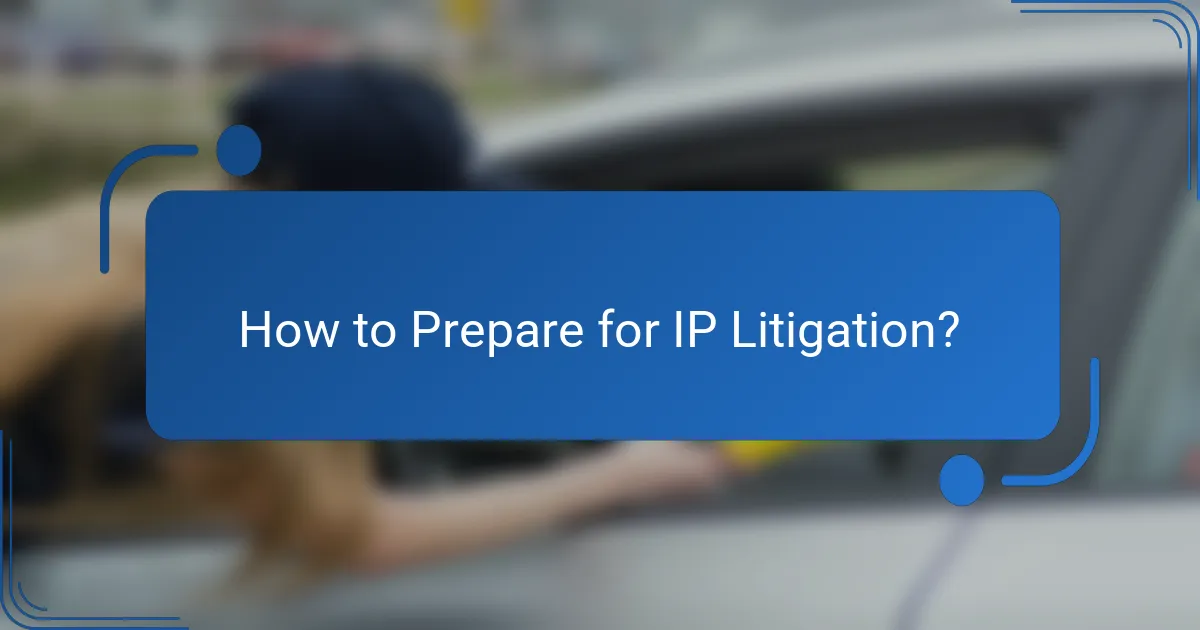
How to Prepare for IP Litigation?
Preparing for IP litigation involves a strategic approach to safeguard your intellectual property rights. Key steps include understanding your legal position, gathering relevant documentation, and consulting with experienced legal professionals.
Document Collection
Document collection is a critical first step in preparing for IP litigation. This process involves gathering all relevant materials that support your case, including patents, trademarks, contracts, correspondence, and any evidence of infringement.
To ensure a thorough collection, create a checklist of necessary documents. This may include technical specifications, marketing materials, and any prior litigation records. Organizing these documents in a systematic manner will facilitate easier access during the litigation process.
Be mindful of deadlines and legal requirements for document preservation. In many jurisdictions, failing to retain relevant documents can lead to adverse legal consequences. It’s advisable to consult legal counsel to understand specific obligations and best practices for document retention in your area.
